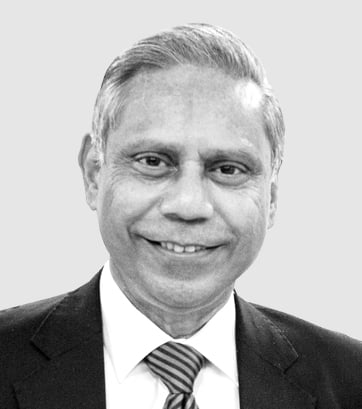Sino-Pak collaboration at UN
While 2021 marks a number of landmarks with respect to the People’s Republic of China (PRC), the 100th anniversary of the founding of Communist Party of China and the 70th anniversary of diplomatic ties between PRC and Pakistan, another milestone was reached on October 25, the 50th anniversary of the restoration of the PRC’s lawful seat in the United Nations.
President Xi Jinping delivered an important speech at a commemorative meeting in Beijing marking the landmark event. He highlighted that the epoch-making occasion 50 years ago is a victory of the Chinese people, as well as for people around the world. The Chinese paramount leader said that the past five decades have witnessed China’s peaceful development and its commitment and dedication to the welfare of humanity.
As China’s all-weather friend and strategic ally, Pakistan too celebrates PRC’s moment of glory not only because of the special relationship, but also because Islamabad had a role to play in the restoration of Beijing’s rightful place. In 1964, besides being isolated by the Occident, the Soviet Union and its satellite states also snapped ties with Beijing over ideological differences, with only Albania and Pakistan supporting the PRC. In that bleak era, Pakistan’s mercurial Foreign Minister, Zulfikar Ali Bhutto, staunchly supported Beijing in the UN and in the UNSC. His fiery speech was memorable: “In these crucial times, when developments are taking place which might well prove decisive to the entire future of humanity, it is highly regrettable that China has been excluded so far from the United Nations, but if this exclusion continues, the United Nations will find itself powerless to apply itself effectively to international problems particularly to those in Asia. At a time when the need for strengthening the United Nations is advocated, it is ironic that the one logical and most important step in that direction, namely, the seating of the representative of the People’s Republic of China in this organization has yet to be taken.”
Bhutto’s speech landed him in trouble because Pakistan was a member of US-led defence pacts SEATO and CENTO. His strong advocacy of developing ties with China impelled US President Lyndon B. Johnson to write to Bhutto, warning him that further overtures to China would jeopardize congressional support for aid to Pakistan.
As Foreign Minister, Bhutto led a delegation to Beijing, where he was warmly received by Chairman Mao. The visit laid the foundations for Pakistan’s trade, military and industrial agreements with PRC. Sino-Pak ties have grown from strength to strength and withstood the test of time.
Younger generations must be reminded that in July 1971, despite Pakistan’s preoccupation with strife and turmoil in its Eastern Wing, Henry Kissinger, the US government’s National Security Adviser, was facilitated in undertaking a clandestine visit to Beijing. While on a formal visit to Pakistan, he feigned illness while sightseeing in Murree. Kissinger was secretly flown to Beijing on a special PIA flight, where he met the Chinese leadership and finalized the details of US President Richard Nixon’s visit to China. Chairman Mao stipulated that before the US President’s visit, Washington DC should ensure PRC’s inclusion in the UN. The rest is history as in 1971, Beijing triumphantly entered the UNSC.
Bhutto’s 1964 speech at the UN soliciting for the PRC to get its rightful place in the UN was delivered with prescience as President Xi declared five and a half decades later that the Chinese people have always safeguarded international fairness and justice, and made major contributions to world peace and development. Beijing has always upheld the authority and sanctity of the United Nations and practiced multilateralism, and China’s cooperation with the UN has deepened steadily over the past 50 years. The Chinese President reminded that China has blazed a path of human rights development that is consistent with the trend of the times and carries distinct Chinese features, thus making major contribution to human rights progress in China and the international human rights cause.
The General Secretary of the Communist Party of China Xi Jinping rightly pointed out that, “No civilization in the world is superior to others; every civilization is special and unique to its own region. Civilizations can achieve harmony only through communication and can make progress only through harmonization.” He reiterated that to build a community with a shared future for mankind is not to replace one system or civilization with another. He expressed the resolve that China shall be firm in opposing all forms of hegemony and power politics, as well as all forms of unilateralism and protectionism. Xi recapped that the international community is confronted by regional disputes as well as global issues such as terrorism, climate change, cyber security and biosecurity.
Only with more inclusive global governance, more effective multilateral mechanisms and more active regional cooperation, can these issues be addressed effectively. Indeed, China has brought value to the UN as it has resolutely upheld the authority and standing of the UN, and diligently participated in green recovery, green production and green consumption and promote a civilized and healthy lifestyle. Now it is up to the world to step up cooperation and work together to address the various challenges and global issues facing humanity.
The writer is a former Group Captain PAF and an author.










